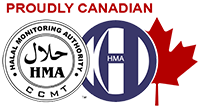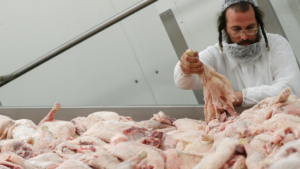The meat industry plays a significant role in the global food system, providing protein for billions of people around the world. However, for those who follow a halal diet, the challenges of ensuring the safety and integrity of halal meat can be significant. In this blog post, we will explore the key challenges facing the meat industry in halal food security and related opportunities in detail. One of the main challenges facing the meat industry in halal food security is the issue of cross-contamination. This can occur when non-halal products are processed or packaged in the same facility as halal products. This can lead to the unintentional contamination of halal products with non-halal ingredients, which is not acceptable for those following a halal diet. To address this issue, many meat processors have implemented strict measures to prevent cross-contamination, such as dedicated facilities and separate equipment for halal products.
Another challenge facing the meat industry is the need to meet the increasing demand for halal food. The global Muslim population is projected to grow by more than 35% between 2015 and 2050, and this is likely to lead to a significant increase in demand for halal food. Additionally, there is an increasing awareness of the benefits of halal food among non-Muslims, which is also likely to drive demand. Meeting this demand will require significant investments in the industry, as well as a focus on innovation and efficiency.
Despite these challenges, the meat industry is taking steps to improve halal food security. Many companies are investing in halal certification programs to ensure that their products meet the highest standards for halal food production. This can include measures such as the use of halal-certified ingredients, the implementation of strict cross-contamination prevention measures, and the use of traceability systems to track the origin of halal products. The halal monitoring authority(HMA) acts as a third-party certifier, ensuring that Halal meat in Toronto is produced by Islamic laws and regulations. They also ensure that halal products are properly labeled and marketed as halal so that consumers can make informed choices about the food they purchase.
By ensuring that Toronto Halal food products meet these standards, the Halal Monitoring Authority (HMA) helps to promote food security in Canada by ensuring that halal meat products are safe, nutritious, and of high quality. This helps to protect the health and well-being of Muslim consumers and promotes the overall food security of the country. Overall, the halal monitoring authority plays a vital role in ensuring that halal meat products in Canada meet the high standards set by the Islamic faith and contribute to the overall food security of the country.
However, there are also significant opportunities for the meat industry in relation to halal food security. One of the main opportunities is the potential for exports of halal food to other countries. There is a growing demand for halal food in many countries, including non-Muslim countries, and this presents a significant opportunity for meat producers to expand their markets and increase their revenues. Additionally, the increasing awareness of the benefits of halal food among non-Muslims also presents an opportunity for the industry to reach new customers. Another opportunity for the meat industry in the halal food market is in the production of halal processed meat products. Many consumers are looking for convenient, halal-certified options such as halal sausages, burgers, and deli meats. The meat industry can meet this demand by investing in halal-certified production facilities and offering a wide range of halal processed meat products. The halal food market also presents an opportunity for the meat industry to improve its sustainability practices. Many Muslim consumers are concerned about the welfare of animals and the environmental impact of meat production. The halal food market provides an opportunity for the meat industry to demonstrate its commitment to sustainable and ethical practices, which can help to attract and retain Muslim customers.
In conclusion, the meat industry faces several challenges in ensuring halal food security. These include issues related to the sourcing and traceability of halal ingredients, as well as the need for increased transparency and accountability in the supply chain. However, there are also significant opportunities for growth and innovation in the halal food sector. By investing in new technologies and processes, and by building a strong certification system, the meat industry can help to ensure that halal food products are safe, wholesome, and of high quality. With the right approach, the meat industry can help to meet the growing demand for halal food products, while also supporting the overall food security of the global halal community. The Halal Monitoring Authority supports you in this journey. We, the halal monitoring authority play a vital role in ensuring that halal products meet the high standards set by the Islamic faith and contribute to the overall food security of the country by promoting safe, nutritious, and high-quality halal products to the market.
So to know more about our certification process, contact our professionals now!



